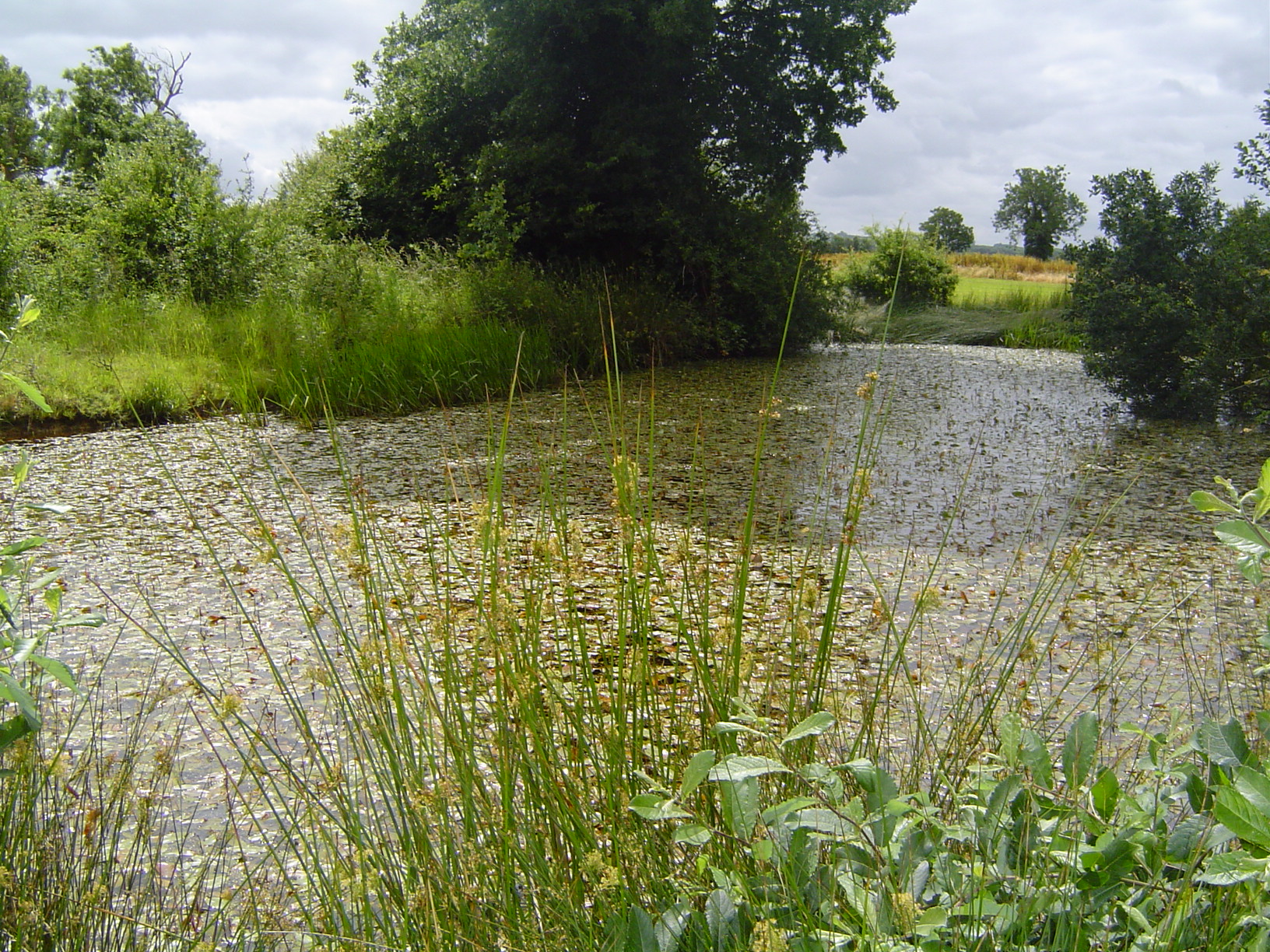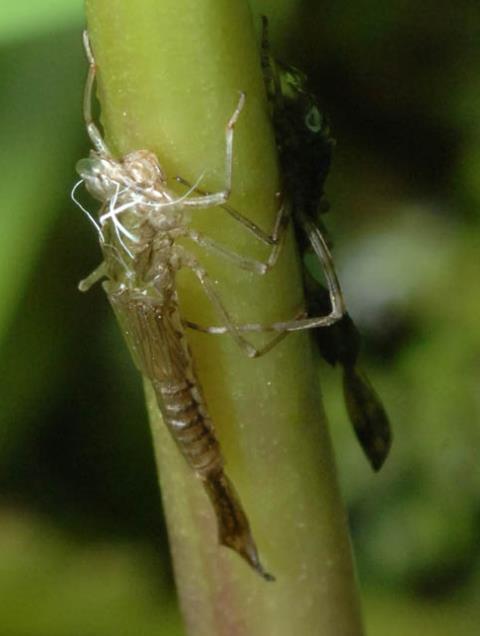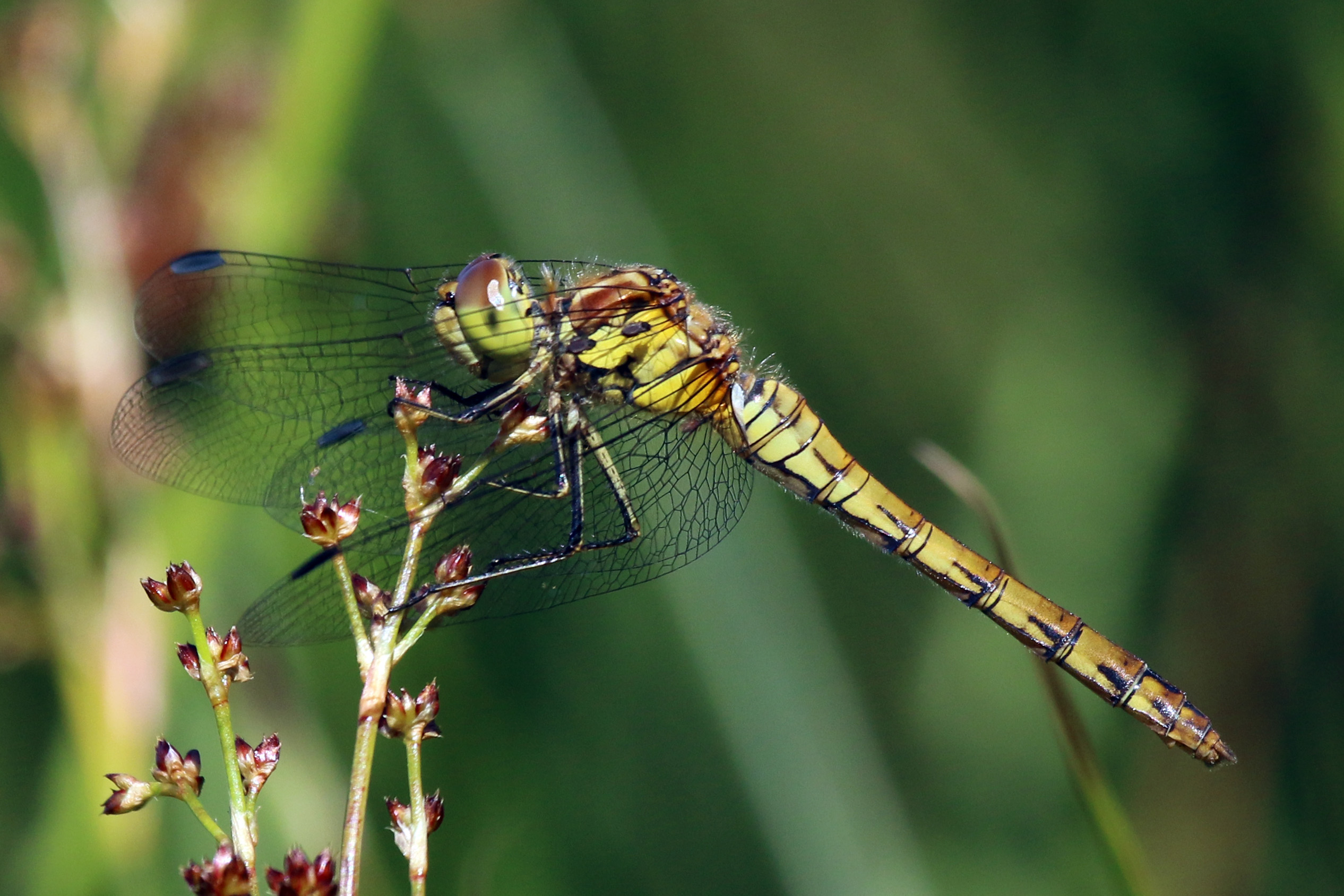Research
Dragonflies on farmland
Agricultural intensification has contributed to the global decline in populations and species numbers of Odonata (dragonflies and damselflies). Odonate ecology on farmland ponds was investigated in order to determine best practice for habitat management for dragonfly conservation. Odonate surveys were carried out at the adult stage and at the aquatic stage by collecting 11,025 exuviae (skin left behind and hence proof of emergence from that water-body) from farmland ponds. While most odonate surveys are undertaken of the adult stage, this study confirmed that ovipositing adult females are recorded at ponds where exuviae are absent, hence adult surveys can over-estimate the number of ponds considered of good quality. Validity of adult records was biased towards species with non-territorial mate-location strategies and generalist species. We suggested different survey methods based on species mobility. Pond habitat measurements indicated that ponds with submerged/floating vegetation supported the greatest abundance and species richness of odonates, especially when the pond was surrounded by a vegetated buffer-strip. However, 30% of ponds without exuviae were also fully buffered, suggesting that buffers are not always sufficient on their own to provide good-quality pond habitats. We demonstrated that successful odonate conservation needs to take into account both local (pond-level) and landscape scales, depending on: sub-order: the more mobile dragonflies (Anisoptera) were influenced most by landscape variables at a larger scale (1600 m) compared with the damselflies (Zygoptera) (100/400 m); and life-stage: the landscape effects were greater on exuviae than on adults. Adult odonates showed a positive response to targeted agri-environment schemes at a landscape scale.
Eva M. Raebel
David J. Thompson
David W. Macdonald
References
Raebel EM, Thompson DJ, Macdonald DW (2015) Local and landscape-scale management of Odonata. In: Wildlife Conservation on Farmland. Eds: DW Macdonald & RE Feber. Oxford University Press.
E M Raebel, T Merckx, R E Feber, P Riordan, D J Thompson, D W Macdonald (2012) Multi-scale effects of farmland management on dragonfly and damselfly assemblages of farmland ponds. AGRICULTURE, ECOSYSTEMS AND ENVIRONMENT 161: 80-87.
E M Raebel, T Merckx, R E Feber, P Riordan, D W Macdonald, D J Thompson (2012) Identifying high-quality pond habitats for Odonata in lowland England: implications for agri-environment schemes. INSECT CONSERVATION AND DIVERSITY 5: 422-432.
E M Raebel, T Merckx, P Riordan, D W Macdonald, D J Thompson (2010) The Dragonfly Delusion: why it is essential to sample exuviae to avoid biased surveys. JOURNAL OF INSECT CONSERVATION 14: 523-533.
-

-
 Azure damselfly exuvia © Eva Raebel
Azure damselfly exuvia © Eva Raebel -
 Common darter © Charles Sharp
Common darter © Charles Sharp





